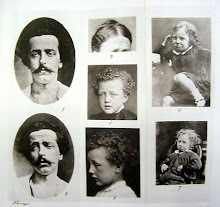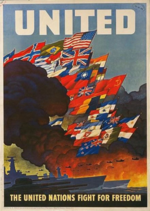During his campaign, former Arkansas Governor Mike Huckabee was quoted as saying, “Any federal judge who uses some international law as a precedent to make a court decision ought to be impeached.”
I spent part of today listening to the testimony of two international lawyers, Larry Warner and Ignacio Torteya on the application of treaty law. During my first year I debated for the University of Texas Law School International Moot Court Team. We debated the fishing rights in international waters and whether the national territory should be expanded to 200 miles. I rented a black suit and we went to Topeka for the National Competition. It was great and I thought that was what law practice would be like.
The next summer I went to Mexico City and took international law classes at the Escuela Libre de Derecho. Mexico City in the early 1970's was a wonderful city. This was before the population exploded and traffic and pollution became so bad. I thought it was the most wonderful place in the world. Restaurants, museums, parks. And for the first time, people were treating me like an adult. I was exultant and wanted to live there forever.
This was when I thought I could be an international lawyer, flying around and giving opinions about treaties in exotic places.
Two monkeys threw wrenches in the plans. One was discovering I could not be a freelance interpreter of treaties, but that I would have to work for a government or corporation. Even then I knew this would not likely be a good fit.
The other was that I found out that international law also seemed to involve a lot of taxation issues. Then, in a large class, maybe a hundred and fifty students, I made the third lowest grade in the class.
The same semester, I made high grades in criminal and constitutional law classes. This should have helped me decide to go another direction, but I was learning pretty slowly.
Still set on the idea of becoming an international lawyer, I dropped out of law school one semester and headed for Brazil to learn Portuguese. It was great. The Amazon, Carnival in Rio, Bahia, the new capital city.
For all of this, maybe I could learn tax law or work for the government or a corporation. But I really couldn't, so I started hanging out at jails.
Anyway, all of these years later, I still get a warm feeling thinking about what might have happened if I could have just shoved this square peg into a round hole.
I also get great pleasure hearing about the international courts. And comparisons between different national laws. And conflicts in laws. And treaties and international rights. Great stuff.
So today, no small amount of nostalgia.
Does international law matter in little Texas courtrooms? Should it?
I have known people who think international law can save the world. They join organizations that support the United Nations and hope for greater involvement of international courts to bring peace and justice to the whole world.
When I was young, I had this same sense about federal law. The states were racist and violated personal rights and didn't believe in free speech. But the U.S. Department of Justice would put little Negro children in white schools where they could get a good education. The feds would bring peace and justice to the whole world.
Life is too short to suffer that type of disillusionment twice.
I expect very little, but I have begun to read international treaty law again. Mike Huckabee, notwithstanding, the world does not seem to be getting any simpler and the judges will have to face the wrath of the former governor of Arkansas.
Wednesday, March 26, 2008
Subscribe to:
Post Comments (Atom)


























_-_Dante_And_Virgil_In_Hell_(1850).jpg)























































2 comments:
Why might you be unsure of the U.N.?
Preamble to the United Nations Charter:
* To save succeeding generations from the scourge of war, which twice in our lifetime has brought untold sorrow to mankind, and
* To reaffirm faith in fundamental human rights, in the dignity and worth of the human person, in the equal rights of men and women and of nations large and small, and
* To establish conditions under which justice and respect for the obligations arising from treaties and other sources of international law can be maintained, and
* To promote social progress and better standards of life in larger freedom,
Under United Nations Watch:
* Increasingly, wars are fought in precisely those countries that can least afford them. Of more than 150 major conflicts since the Second World War, 130 have been fought in the developing world including: Afghanistan, Angola, Cambodia, Georgia, Liberia, Mozambique, Somalia, Sri Lanka, the Sudan.
* Since the 1950s, more wars have started than have stopped. To date, wars had been running in Afghanistan for 27 years, Angola, 40; Liberia, 16; Somalia, 17; Sri Lanka, 21; Sudan, 22.
* The global case-load of refugees and displaced persons is growing at alarming speed. The number of refugees from armed conflicts worldwide increased from 2.4 million in 1974 to more than 57.4 million today, the report notes, with another 70 million people displaced within their own countries. Children and women make up an estimated 80 per cent of displaced populations.
Thank you for your comment. Do you see a causal link between policies of the UN and this plague of wars on poor people?
I have heard before discussions of the shift in modern warfare from soldier casualties to civil casualties, young adult to children and the old, men to women. And as you note, displaced people are almost all women and children.
I have seen this attributed to war technology changes, but it would seem that political changes must have an impact as well. What about UN policies would you think would have caused these changes? Or has it not been that the UN caused the violence against the world's poor, but was just ineffective? Or did it help, but just not enough?
Post a Comment